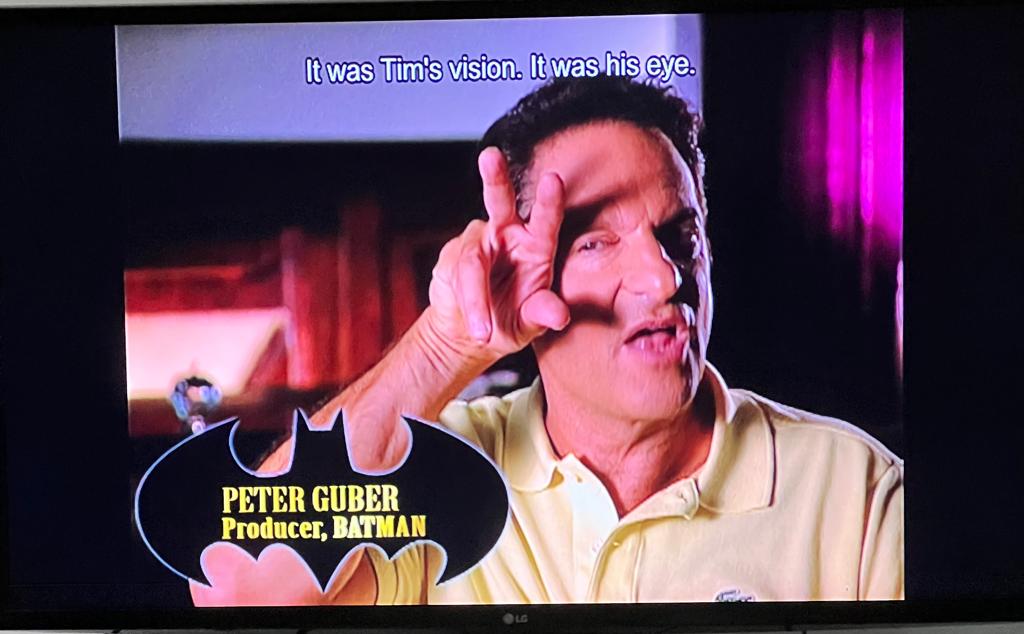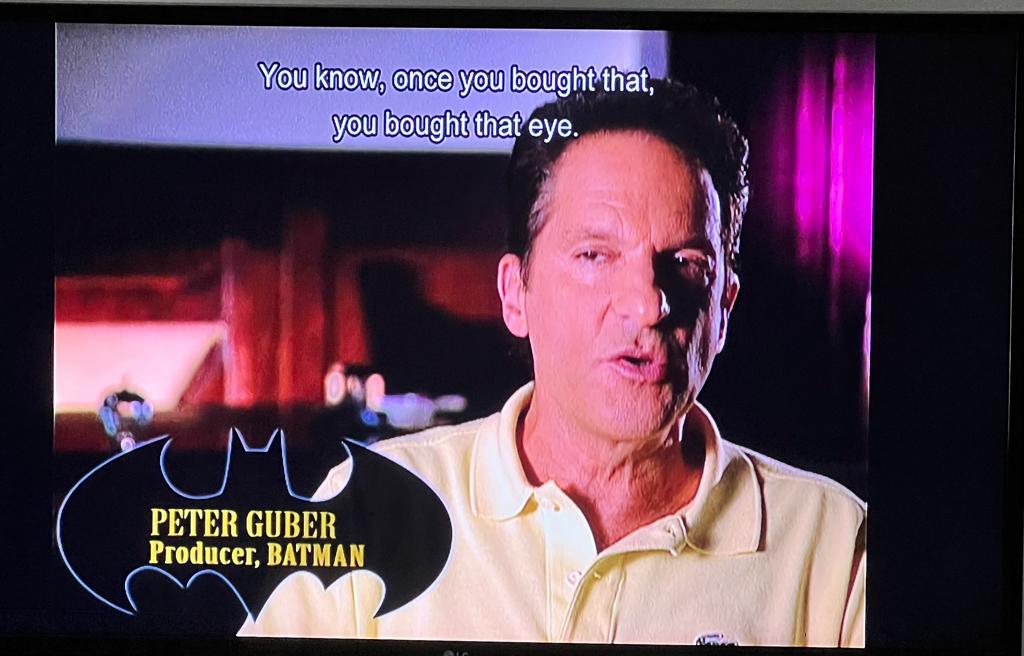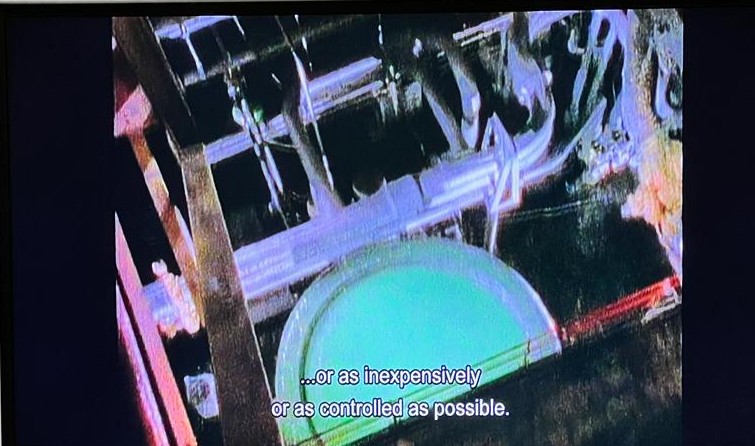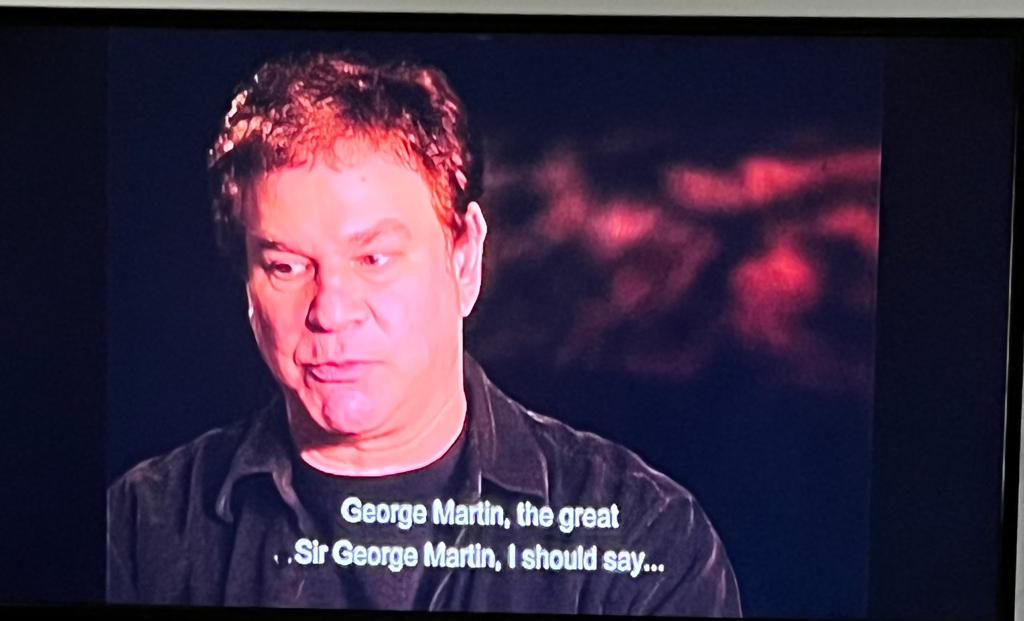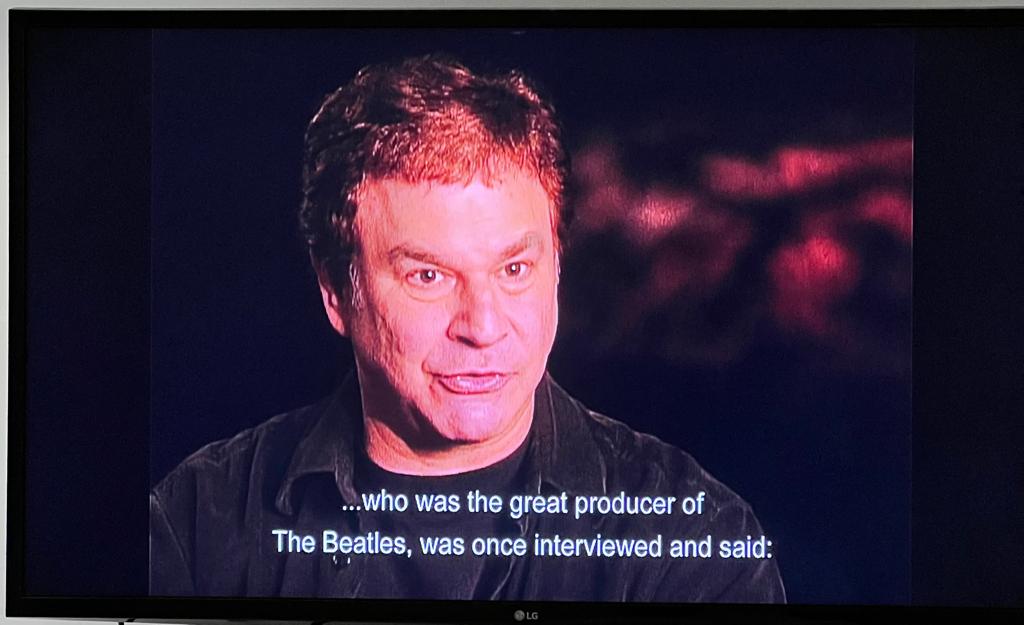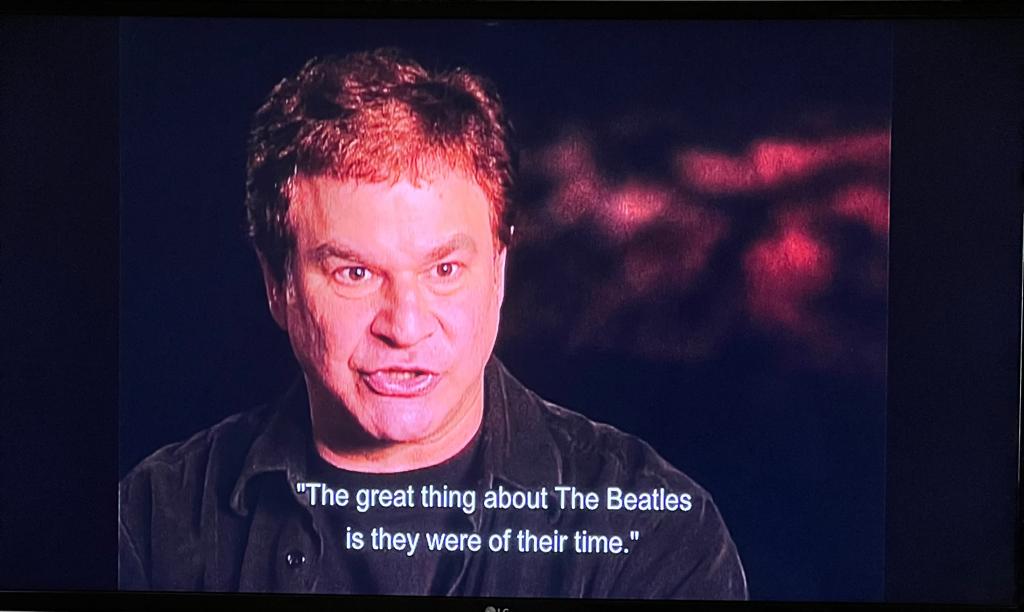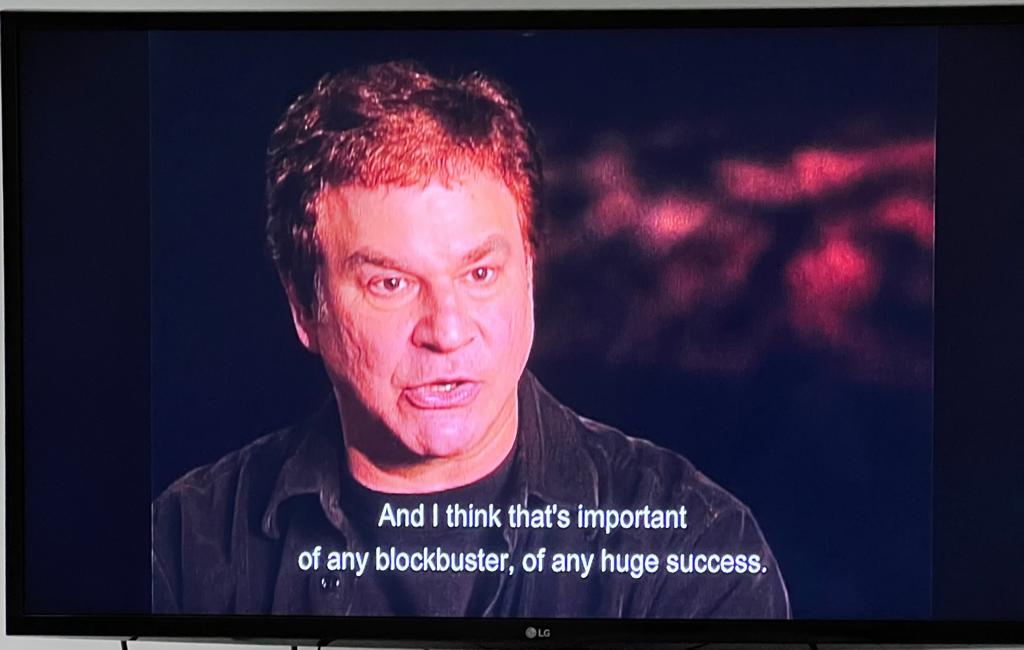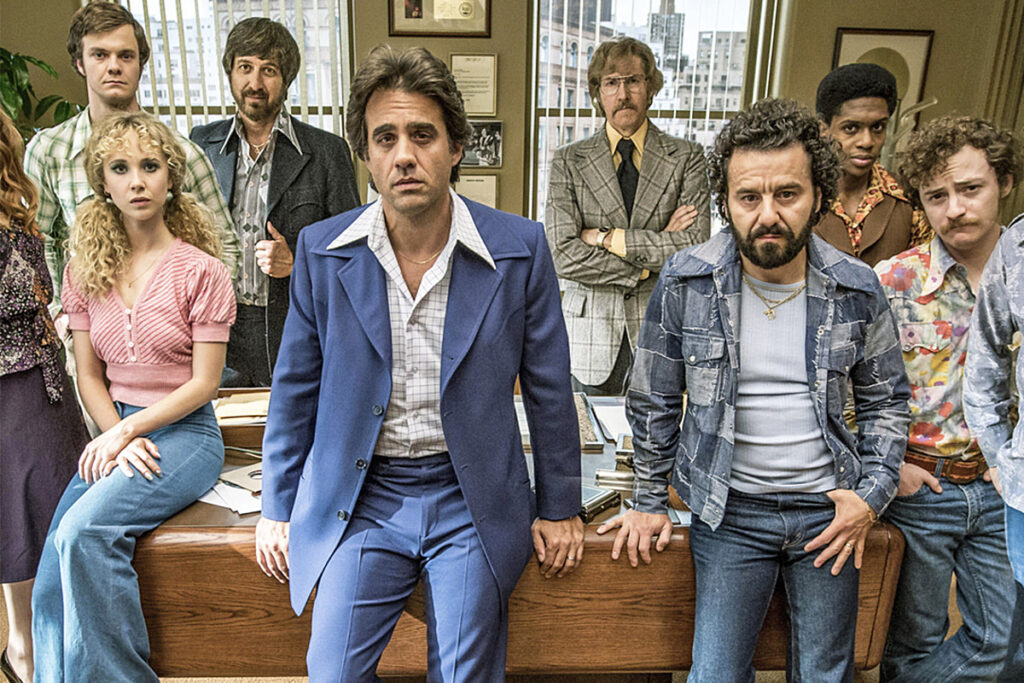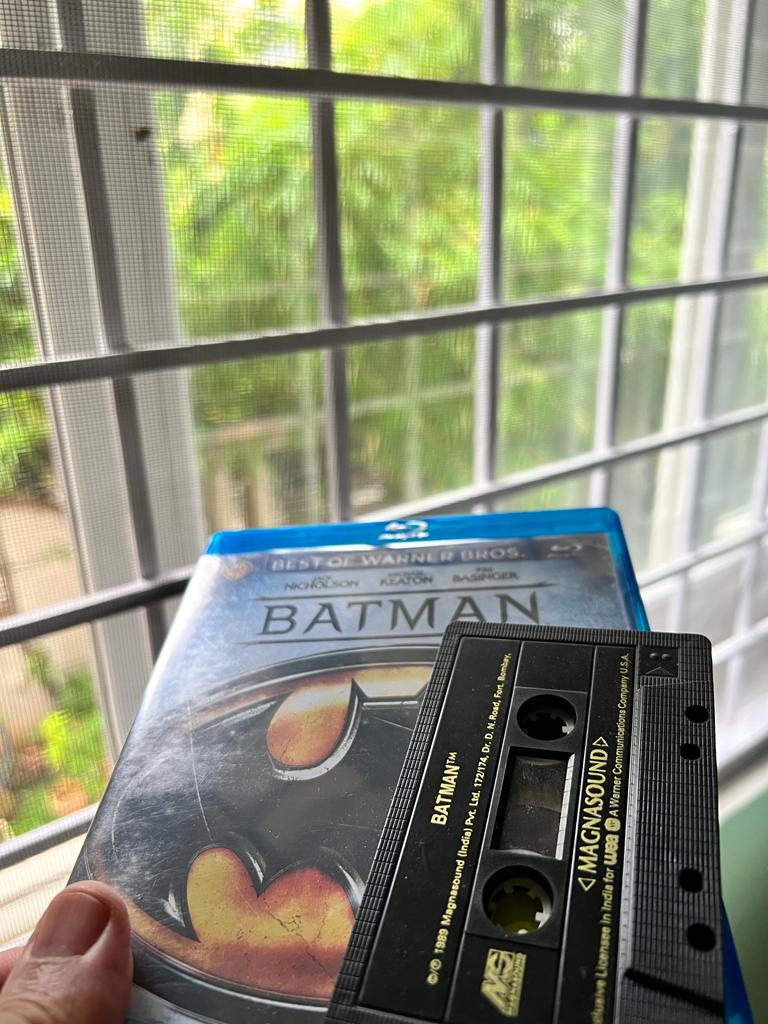
Batman (1989)
Batman (1989) is a seminal project in the Batman timeline. The movie took more than a decade to see the light of the day, but the success it achieved was outstanding. For the first time, Batman was portrayed as a realistic in a rather dark universe of Gotham City, instead of the comedy caper (wham-bam) kind that was made popular in the previously aired TV series.
It also redefined the scale of movie making and how a tent pole movie was hoisted and marketed. In short, the movie set a benchmark for a high budget movie that appealed to a wider audience and that could be released in a zillion of theatres, to rake in the moolah and the associated merchandise and partnerships.
From the making of Batman features on Blu-Ray
- Apparently, Bob Kane, the creator of Batman, got the inspiration from Leonardo Da Vinci diagrams and quote about bat and flying.
- After securing the rights of Batman, the duo of Michael Uslan and Benjamin Melniker, had to wait a few years inspite of a struck deal with Peter Guber and Jon Petersother.
- Tim Burton was instrumental in the dark take of Batman. He and screenwriter Sam Hamm, took the inspiration from “Batman: The Killing Joke”, a novel by Alan Moore
- Once this vision was bought, producers did everything in their capacity to make it happen. As per the producer Peter Guber, they looked at how to make it less expensive (not cheap). Hence Pinewood Studios in UK was chosen to produce the major part of the movie building huge sets on the backlots. Tim Burton liked the ideas, as he would be away from the entire buzz in the media.
- The choice of Michal Keaton received a very bad reception in the beginning, even making it to to the front page of Wall Street Journal. There were protests by fans in the streets and even effigy of him was burnt. But the team stood by their decision. Tim Burton felt it was not normal for any person to stay behind the mask, and a comedic actor would dispel the initial exceptions of who is behind that mask, as opposed to the regular actors. And he felt that Michael Keaton had something in his eyes that could convey a lot, which was to his advantage, when most part of the movie he was covered in a costume and a mask.
- The production design was top notch and production designer Anton Hurst, adopted the look from the vision of a dark and realistic universe. The props, toys, bat mobile…all of them were of cutting edge at that time, and added to the iconic look of the film.
- Prince’s music album was an afterthought but it worked wonders for the marketing of the film, as it became the harbinger of the campaign and its ensuing success.
- Fans waited days before the preview show to get a glimpse of the stars.
- Sean Young was the selected female lead and she had an accident while riding a horse and Kim Bassinger stepped in as a replacement.
- Quite a few names were considered for the part of Joker including the likes of Robin Williams, but for Tim Burton it was Jack Nicholson all along, and desperately hoping he would accept the role. And he did. The makeup that was done for him made sure the actual expressions and face of the actor was intact. Jack Nicholson and Tim Burton did away with elements that interfered in the acting process.
- There was improvisations made, and one of the famous ones, was the inclusion of pre-climax waltz based scene, which was inserted after Jack Nicholson and producer saw ‘King and I’ musical.
- Apparently Jack Nicholson made tonnes of money (according to Peter Guber), as he the one who believed the success of the movie was phenomenal (according to Jack Nicholson).
- Danny Elfman’s music became a rage and even a separate soundtrack album was released.
- Initially, Robin was to be a part of the script, and a few scenes were storyboarded too, but later were dropped from the story. This according to the producer was right, as the movie was supposed to be an origin one and in the comics the character was introduced after an year from the first comic.
Robert Wuhl has some of the best lines in the movie and has the last word on the film’s blockbuster success.
Related Links
Leonardo Da Vinci and the Batman
Joker’s remuneration is not a joke
Michael Uslan Shares His Four-Decade Journey Bringing Batman to the Big Screen

